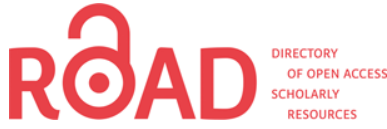- Editorial Board
- Aims and Scope
- Peer Review Process
- Publication Ethics
- Open Access Policy
- Plagiarism Policy
- Indexing
- License Term
- Manuscript Template
- Archiving Policy
- Complaints Policy
- Copyright and Licensing Policy
- Correction, Retraction, Withdrawal Policies
- Creative Commons License
- Publication Ethics and Malpractice Statement
- Article Processing Charge
- Authors Guidelines
- Reviewer Guidelines
CORRECTION, RETRACTION, WITHDRAWAL POLICIES
Corrections
All corrections officers must provide clear and concise written instructions to staff, reviewers, and researchers. Given concerns about administrative liability and accreditation standards for such issues and the need to promote professional conduct, it is essential to have well-defined written policies and procedures. In addition, they form the basis for supervising, directing, and assisting staff, as well as safeguarding against errors. The Corrections Section and its appendices require the following specifications:
- Are these revisions associated with grammatical faults, statistical flaws, or factual discrepancies?
- Do you require a specific format or structure (e.g., tabular, paragraph)?
- Should appendices include comprehensive revisions, additional proof, or a comparison of previous and updated content?
Retractions
Public announcements that retract, cancel, withdraw, or cease publication of a previous work are known as retractions. Journal editors, publication authors, or their institutions may initiate retractions. Editors will request data from reviewers to support their requests. If there are instances of duplicate submission, plagiarism, or fraudulent use of data, editors will retract the article. A retraction refers to an amendment that changes the basic concept of the original work, while a correction refers to an amendment that preserves the basic idea of the work. Depending on the specific circumstances, a retraction or correction is the appropriate course of action. The Iraqi Journal of Scientific and Engineering Research relies on and derives its retraction policy mostly from the principles and standards set by the Committee on Publication Ethics (COPE). Please refer to the document at the following link:
https://publicationethics.org/files/retraction%20guidelines.pdf.
Withdrawal Policy
Sometimes, authors request to withdraw their work from the publication process after submission or during the immediate aftermath of publication. This may result in the editors, reviewers, and editorial board being unable to withdraw the article. The concerned author must submit a formal request using the designated template. When we withdraw an article, we save it in our database and take no further action. The editors may withdraw articles from our journal if they unintentionally duplicate other published articles or if they breach our journal's publication ethics standards. The corresponding author must formally initiate the retraction process using the designated template.









